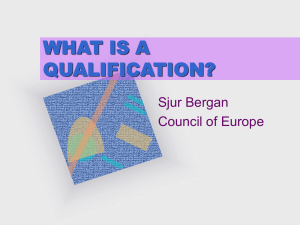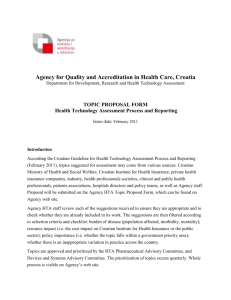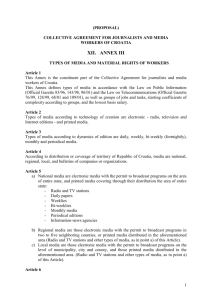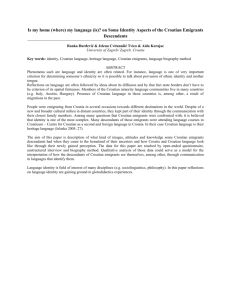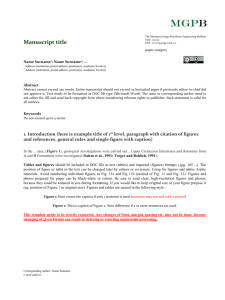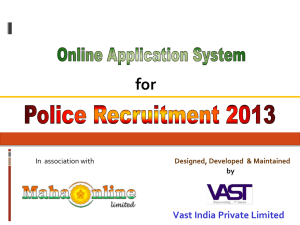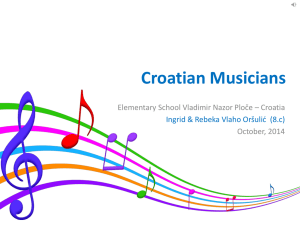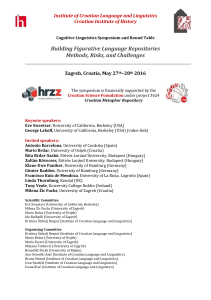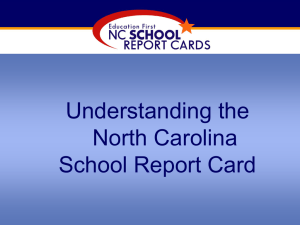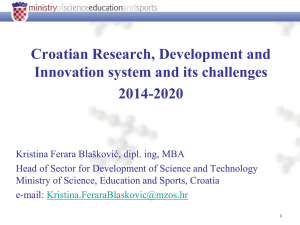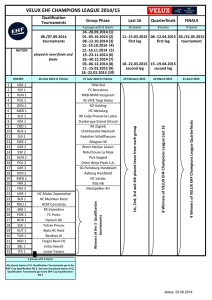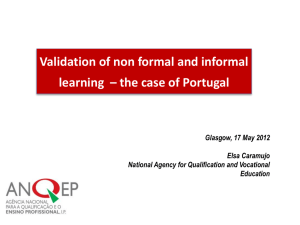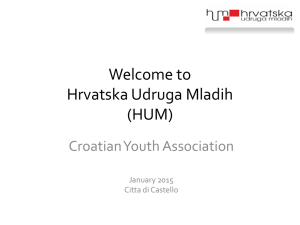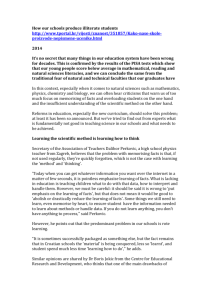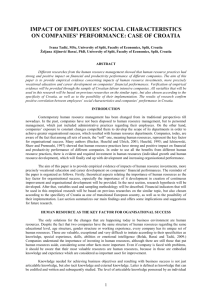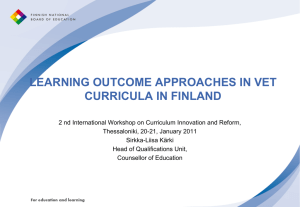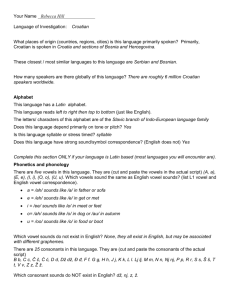Development of teacher standards Croatian context
advertisement
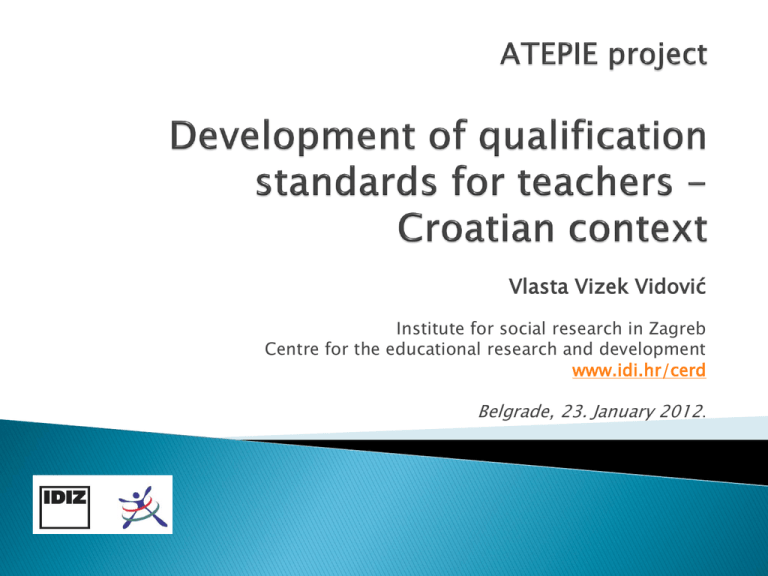
Vlasta Vizek Vidović Institute for social research in Zagreb Centre for the educational research and development www.idi.hr/cerd Belgrade, 23. January 2012. Policy making institutions/bodies in educational sector Ministry of science, education and sports National council for higher education Parlamentary board for education and science National board for CROQF Public agencies supporting /supervising educational system: Agency for science and higher education Croatian Education and Teacher Training Agency Agency for vocational education and training and adult education Agency for science and higher education National centre for external evaluation of education Providers of teacher education Initial teacher education – 7 universities Induction – Croatian Education and Teacher Training Agency In-service education - all agencies, numerous NGO’s Research institutions Universities – faculties of social sciencies and humanities, teacher faculties Institutes for social research (IDIZ-CERD, Pilar Institute) NGO’s in educational sector (NEPC, FSO, IRO, Step by step) Professional and civil associations in education teachers unions, parents associations International organizations/funds ETF, ESF, OECD, OSI, UNESCO-Cepes, UNICEF, World bank Act on Scientific Activity and Higher Education (2003) Education ector development plan 2005-2010 (2005) Act on Education in Primary and Secondary Schools (2008) State Educational Standards (2008) Act on Vocational Education (2009) Act on quality assurance in Science and HE (2009) National curriculum for pre-school education, general complusory and secondary school education (2011) Croatian Qualifications Framework (2007) (sectorial groups – started in 2009) all avaliable at www.mzos.hr Initial teacher education: Class teachers (primary school): at teacher faculties, MA level, integrated program (300 ECTS), concurrent model, competence based curriculum Subject teachers (primary and secondary school): at discipline faculties, two cycles (3+2), consecutive model, teaching competences acquired at MA level – with 60 ECTS workload) Induction: novice status, duration one year, on the job approach, appointed school – based mentor, regulated by by-law, state exam In-service teacher education: organized & supervised by Agencies, recently modularised, losely connected to promotion Quality assurance – external evaluation by Agency for science and higher education and National centre for external evaluation Universitation of ITE for primary school teachers (three cycles) Expansion of educational sciences/methodologies space in discipline programs for subject teachers (60 ECTS) Competence based approach to curriculum development in HEI Emphasis on student centred approach to teaching/learning at all levels of education Introduction of life-long learning and continuous professional development perspective in in-service teacher education Implementation of quality assurance mechanisms across educational levels Introduction of a concept of external system for certification of the teacher qualifications (licencing) independant of induction Most changes adopted at the formal level without deeper understanding or commitment leading to frustrations, resistance, low motivation of actors A lot of fragmented efforts of various stakeholders – lack of cooperation and synergy among actors, sometimes rivalry Low visibility of different initiatives in broader educational context - poor dissemination of information Questionable sustainability of most initiatives – campaigne style approach No stock-taking procedures, no follow-up actions, no continuity in strategy development Lack of new general strategy for development of education system and /or specific strategy for teacher development Starting points: Croatian government obligation to develop qualification standards for 24 sectors – following adoption of CROQF Qualification standards for teachers ackonwledged as precondition for implementation of teacher licensing system Awareness of educational sector of EU initiatives directed toward creating common principles for teacher competences and recent discussions on teaching as regulated profession Accumulated evidence favouring competence based approach to teacher education as well as development of qualification standards for teacher as one of the tools for achieving high quality teaching and learning In January 2011 Position paper on licencing for NCEEE In October 2011 a public call for: Multi-annual operational programme “Human resources development”, instrument for pre-accession assistance (IPA) “Further development and implementation of the Croatian Qualifications Framework” In November 2011 application submitted for the project: „Development of the national qualification standard for teachers as a basis for the implementation of a teacher licensing system“ Applicant: National center for external evaluation of education Partners: Centre for educational research and development, Teacher faculty, University of Zagreb Two schools (primary and secondary level) Overall objective: To design a national qualification standard for teachers that will contribute to further development and implementation of the Croatian Qualifications Framework (CROQF) in the education system. Specific objectives: To define a national qualification standard for school teachers as a set of competences of specific level, volume, profile and quality, as a basis for the implementation of a licencing system for teachers To define the learning outcomes that will be used to demonstrate the applicability of the qualification standard in the licencing process Do your best and hope for the best! Thank you for your attention!
